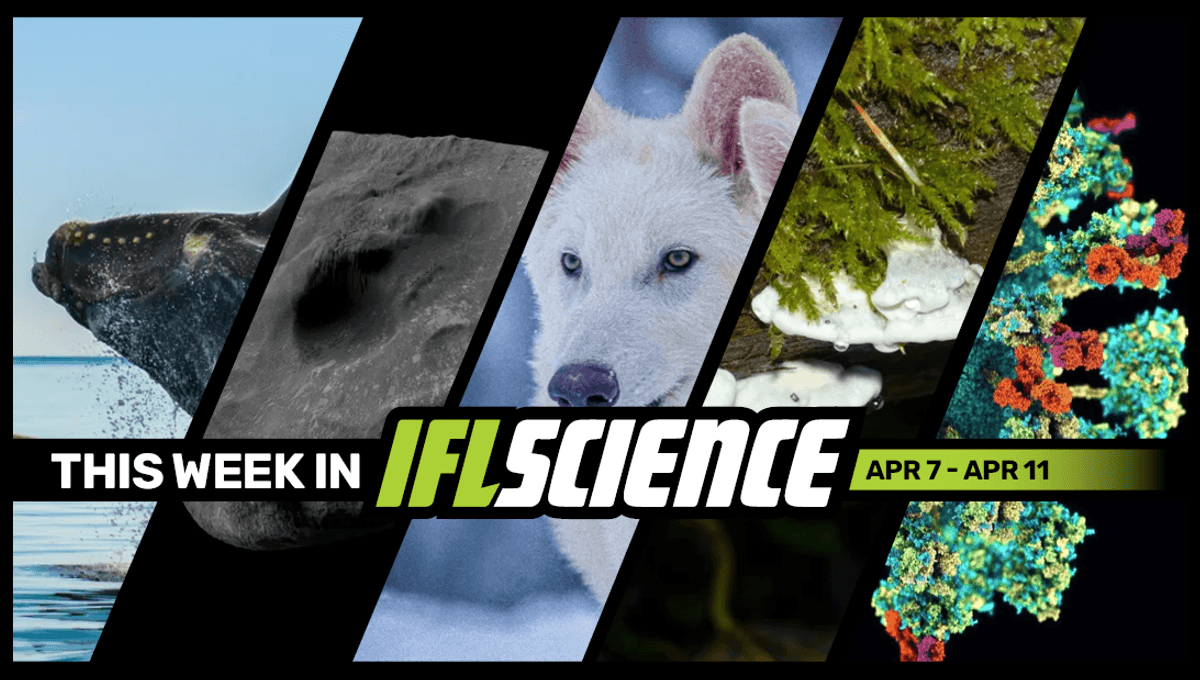
This week, the dangerous asteroid that might hit the Moon has a very unusual origin, one of the most bitter compounds in the natural world can be found in a common mushroom, and a potential long COVID drug has been successfully tested on mice, sparking hope for a much-needed treatment. Finally, we ask: Is time actually just an illusion?
Create an IFLScience account to get all the biggest science news delivered straight to your inbox every Wednesday and Saturday.
First-Ever Intersex Southern Right Whale Discovered Among 36-Year-Old Crossbow Skin Samples
In 1989, a team armed with specialist crossbows collected skin samples from whales that would lead to a remarkable discovery three decades later. Those skin swatches came from southern right whales (Eubalaena australis), and when study author Carla Crossman of Saint Mary’s University, Canada, got the chance to analyze their genes, she discovered something science had never reported in this species before. Read the full story here
Dangerous Asteroid That Might Hit The Moon Has A Very Unusual Origin
Asteroid 2024 YR4 is back in the spotlight. Brand new research has produced a better estimate of its size and orbit, which give it a 3.8 percent chance of hitting the Moon. Now a different group has looked at its orbital past, suggesting a likely place of origin: the middle of the main asteroid belt between Mars and Jupiter. Read the full story here
Dire Wolf “De-Extinction” Facilitates Non-Invasive Cloning Of The World’s Most Endangered Wolf
Colossal Biosciences have introduced a new kind of wolf to the world, but had you been alive over 12,500 years ago you might’ve seen a similarly enormous predator stalking across the Americas. They have functionally de-extincted the dire wolf by genetically modifying a gray wolf, giving life to three puppies that share some of the traits of these ancient animals, including giant heads, incredible musculature, and big white shaggy coats. Read the full story here
One Of The Most Bitter Compounds Known To Humans Can Be Found In A Common Mushroom
Scientists have discovered what could be one of the most bitter substances known to date. The potent chemical compound comes from a “bitter bracket” mushroom and has helped shine a light on how humans detect and react to such strong bitterness. Read the full story here
Potential Long COVID Drug Works On Mice – Sparking Hope For Much-Needed Treatment
An antiviral drug that attacks a SARS-CoV-2 virus protein protects mice against many of the most severe effects of the disease, including some that can linger on. Trials on humans are yet to begin, but the work raises hopes for progress against the ongoing legacy of the pandemic. Read the full story here
TWIS is published weekly on our Linkedin page, join us there for even more content.
Feature of the week:
Is Time An Illusion?
Time, or at least our perception of it, is more fluid than we often assume. We can stretch time, spend it, make it, kill it; if we go fast enough, or get too close to the wrong black hole, we can slow it down to almost an infinite degree. At the same time, it’s stubbornly inscrutable – always half-hidden, and defying any attempt to fully nail it down as a concept. So, what really is “time”, and is it all just an illusion? Read the full story here
More content:
Have you seen our e-magazine, CURIOUS? Issue 33 April 2025 is available now. This month we asked, “Do Animals Make Art?” – check it out for exclusive interviews, book excerpts, long reads, and more.
PLUS, the We Have Questions podcast – an audio version of our coveted CURIOUS e-magazine column – continues. In episode 6, we ask, “How Do You Rediscover A ‘Lost’ Species?”
Season 4 of IFLScience’s The Big Questions podcast has concluded. To revisit all of season four’s episodes, click here.
Source Link: First Intersex Southern Right Whale Found In Crossbow Skin Sample, Dire Wolf "De-Extinction" Facilitates Non-Invasive Cloning Of Endangered Wolf, And Much More This Week